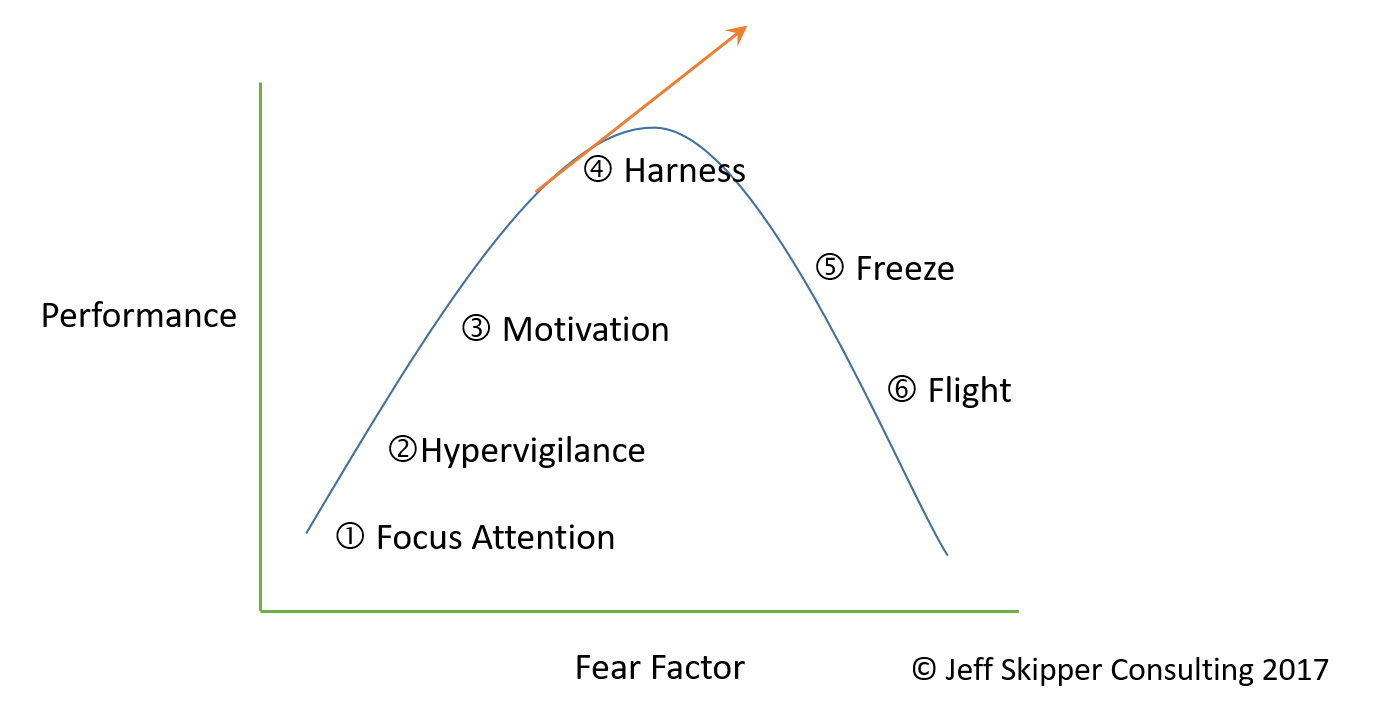Most people are aware of the ‘fight or flight’ syndrome. A lecture on stress is usually accompanied by references to the ‘lizard brain’ and the negative effects on our ability to learn or think clearly. This leads to a discussion of coping mechanisms we can use ‘in the moment’.
I don’t want to cope; I want to master it.
Fear is real, but poorly estimated
Everyone has fears. That’s normal. But we tend to ‘overthink’ them and convince ourselves that:
a. The probability our fears will come true is very high.
b. The consequences of our fears are public embarrassment which we will never overcome, or death.
Irrational. We focus far too much on unlikely outcomes that are completely survivable. But it debilitates us nonetheless.
There are positive fears
Here’s the all important reframe: Focus on positive fears. For example:
- Fear of failure vs. Fear of missing the learning opportunity inherent in failures
- Fear of stumbling during a speech vs. Fear of people never hearing your message
- Fear of finishing last vs. Fear of regret for not trying
The right idea is to focus on success, but most of us still harbor some fear. So be it. If you are going to have fears, divert your mental attention to positive fears as a critical step in harnessing them for action.
Fear is our friend
The problem is that focusing on fears gobbles precious energy. Brain power is limited. Fears causes emotional drain. But it doesn’t have to.
Research has proven that stress can be helpful, up to a point. It works on a continuum. Fear can be viewed in the same way.

Something unusual in the environment will capture our attention. A new manager. If its dangerous to our ego or sense of self, we become hypervigilant, seeking additional evidence that the threat is real (asking peers what they know about Mr. New’s style). That percolating fear should be used to motivate action – to collect more information (ask Mr. New directly for his strategic direction) so we can respond appropriately or take a position that will mitigate the threat (improve performance, align with direction, prepare your resume). At a higher level of fear inducement, we ride a fine edge between doing something extraordinary with that energy (volunteering to design and lead a team realignment session with Mr. New) or curling up in a ball to wait it out.
The pinnacle of fear may be just what you need to drive a higher level of performance or innovation. It may be enough to urge you on to something incredible. That will only happen if you approach fear as a friend.
Dedicated to your excellence,
Jeff Skipper



